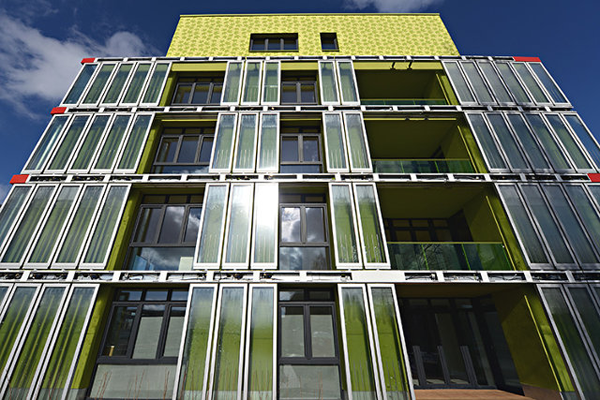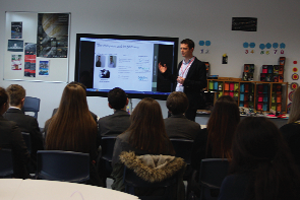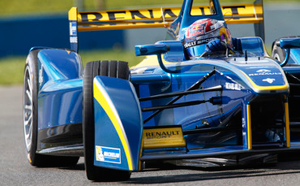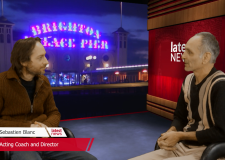DR Caroline Oprandi: Zero emission technology
Science & technology at Portslade Aldridge Community Academy

Phycology, the scientific study of algae, is fast demonstrating that algae is a promising source of clean, inexpensive energy. The world’s first algae powered building opened in Hamburg last year, known as the Bio Intelligent Quotient (BIQ) building. The BIQ building is coated on its two sun-facing sides with glass-plated tanks of suspended algae. Pressurized air is pumped into the system, feeding the organisms carbon dioxide and nutrients while moving them about – creating a lava lamp effect. Periodically, algae are culled, mashed into biofuel, and burned in a local generator to produce power. The result is a building shaded from summer heat by algae foliage, insulated from street noise, and potentially self-generating the power to sustain its own harvesters, heat and electricity.

Scientists have developed this technology further, where bio-photovoltaic cells (BPV) convert the energy produced by algae during photosynthesis into electricity. Phycology is also making an impact on the Grand Prix. As part of its promise to showcase the best in cutting edge zero emission technologies, the world’s first electric Grand Prix will power cars with electricity derived from algae.
The world’s first algae powered building opened in Hamburg last year

Recently, Dr David Thomas introduced our students to his multi-award winning, government and industry supported company, Industrial Phycology. The company has developed a patented, scalable, weather independent, low footprint, algae based wastewater treatment and material recovery process. The algae-based wastewater treatment can remove a range of contaminants (phosphates, nitrates, metals, plus approximately 30% of COD) from the water in one step and mitigates carbon emissions (algae consume CO2 for growth).
Here at PACA we will be setting up a phycology experiment with David’s help and expertise! David said to our students that the hardest thing he has had to learn was not the science, but the entrepreneurial business skills.
Increasingly, students need both of these skills to be successful in the workplace.



















